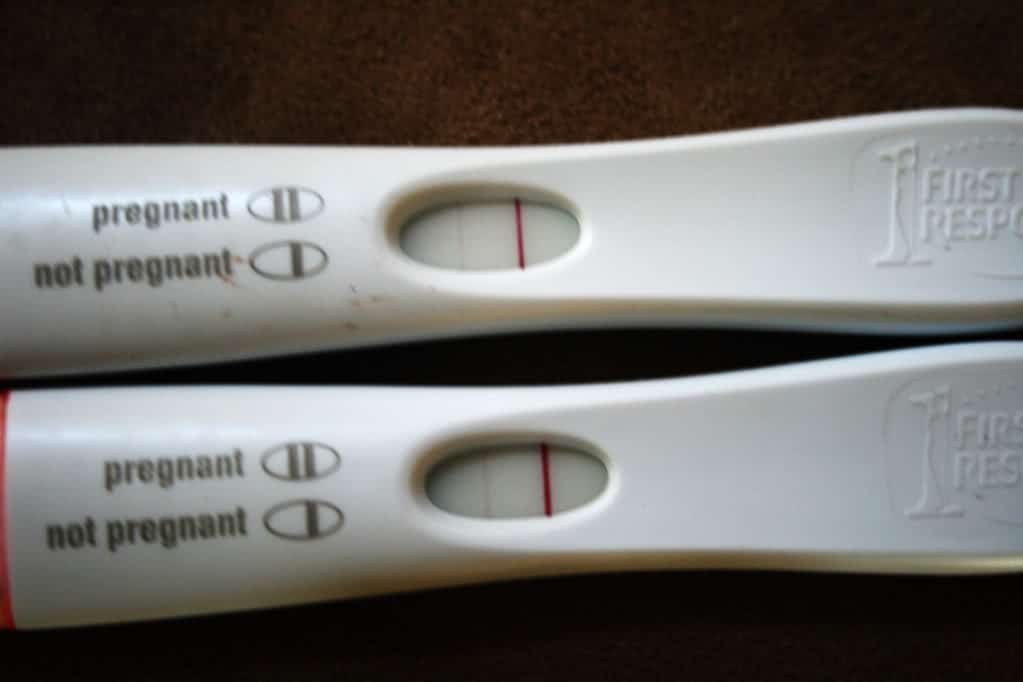A chemical pregnancy is sometimes called Biochemical pregnancy. It is an early loss of pregnancy (miscarriage) that occurs before the fifth week of the embryo implantation.
Many women who have experienced chemical pregnancy, did not actually realize that they were pregnant. This is because about three weeks after your previous monthly period.
A fertilized egg has implanted on the uterus/womb, and cells which would form placenta begin to produce high-level pregnancy hormone hCG (human chorionic gonadotropin) that are high enough to be detected on a urine test or blood test.
But for some reason, this implantation did not fully happen to result in bleeding about a week after your regular period is due.
And since it is still too early for an ultrasound to detect a placenta developing or a gestational sac, the woman is unaware of her lost pregnancy. A chemical pregnancy is often common in women who are undergoing IVF(in vitro fertilization).
Signs and Symptoms
A chemical pregnancy does not usually show any symptoms aside from late menstruation. But if it does show signs they may include;
- A positive pregnancy test result quickly changes to negative.
- Mild abdominal cramps.
- Vaginal bleeding that occurs even after testing positive.
- Mild spotting a week before period is due.
- Test results may show a low hCG level.
Causes and Risk factors
It may not always be possible to determine the exert causes of chemical pregnancy but the most common causes of the miscarriage or loss of pregnancy is due to a problem with the embryo, probably caused by the low quality of sperm or egg.
Other causes of chemical pregnancy include;
- Chromosomal abnormalities: This is one of the major causes of early pregnancy loss or chemical pregnancy. It occurs when there are irregularities in the chromosomal arrangements which prevents a fetus from developing in the uterus.
- Insufficient hormone levels: For the body to support the growth of a fetus or embryo, it needs a higher level of some hormones such as progesterone which prepares the uterus for pregnancy.
- Abnormalities in the Uterine: The presence of some irregularities in the uterine such as uterine fibroid can prevent an embryo or fetus from implanting in the uterus.
- When body mass index is low: underweight women whose body mass index are low have a high chance of early loss of pregnancy
- Advanced maternal age: Women who are 35 years or older may find it difficult to get pregnant or stay pregnant.
- Infection such as syphilis: Sexually transmitted infection such as syphilis, can be transmitted from an infected mother to the fetus through blood product transfusion and can lead to loss of pregnancy.
Can the Woman get Pregnant again?

Chemical pregnancies may have little or no effect on a woman’s body. It is possible to try and conceive again almost immediately as the chances of having a normal pregnancy is high.
Is there any Treatment?
Experiencing chemical pregnancy once or twice doesn’t necessarily mean that you cannot conceive and have a healthy delivery. Although there is no specific treatment for this type of pregnancy loss, there may be available options to help you conceive.
But if you are experiencing chemical pregnancy frequently then you may need to see your doctor so that he can carry out some tests to help diagnose any possible underlying condition.
Treating an underlying condition such infection that has been diagnose as the cause of a chemical pregnancy can improve your chances of getting pregnant again and having a healthy delivery.
Although some underlying conditions that may be uterus related problems may need a correction surgery before you can conceive again.
Conclusion
Chemical pregnancy is a type of miscarriage that goes unnoticed by many women. So ensure to book an appointment with your doctor, when you notice your positive pregnancy test has changed to negative within three to five weeks of pregnancy. Especially if it has occurred more than once.












